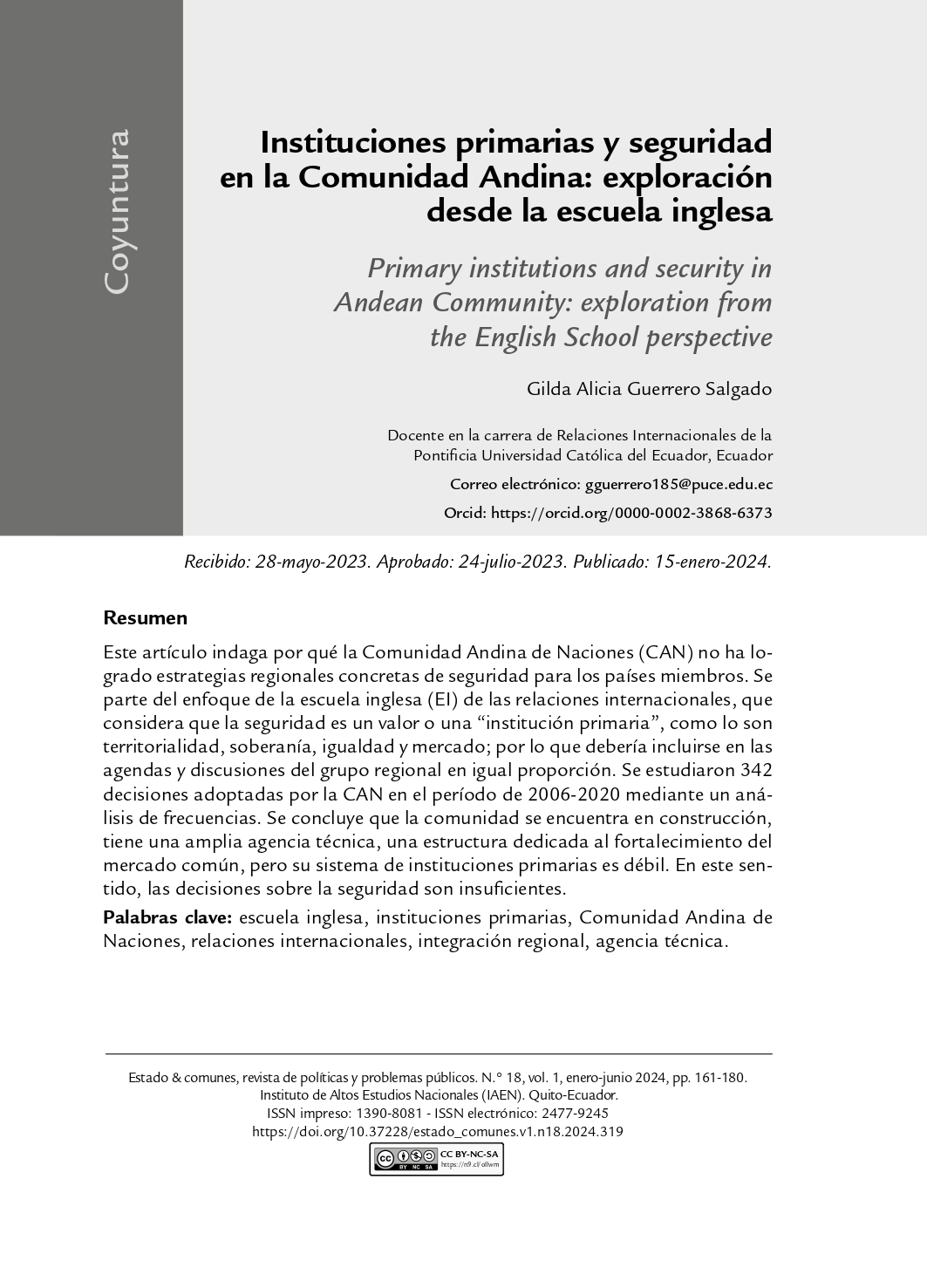Primary institutions and security in Andean Community: exploration from the English School perspective
Main Article Content
Abstract
This article explores why the Andean Community of Nations (CAN) has failed to achieve concrete regional security strategies for member countries. The research uses the English School of International Relations approach that considers security a value or a "primary institution", like territoriality, sovereignty, equality, and market; therefore, agendas and discussions within the regional group should include security proportionally. Through a frequency analysis, the study reviewed 342 decisions adopted by the CAN during 2006-2020. The results show that the community is still consolidating its structure. Although CAN has a broad technical agency and a scheme dedicated to strengthening the common market, its system of primary institutions is weak. In this sense, decisions on security are insufficient.
Downloads
Article Details
How to Cite
Issue
License
Copyright (c) 2024 Gilda Alicia Guerrero Salgado
CC BY-NC-SA. This license allows sharing, copying, distributing, performing, and publicly communicating the work, as well as creating derivative works.











